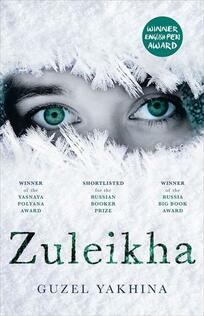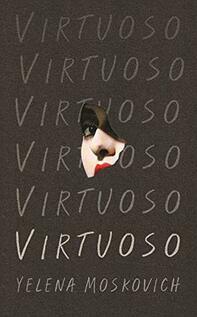Zuleikha by Guzel Yakhina translated by Lisa C Hayden
Things are changing in 1930s Soviet Russia, and kulaks (small landowners) like them are deemed enemies of the state. When Murtaza is murdered one winter for hiding the grain they family need for next year’s food, and Zuleikha is arrested. By chance, it’s her husband’s killer who’s charged with accompanying the train in which she and several hundred exiles to Siberia, and in overseeing the beginnings of a settlement there.
Many perish, either on the six-month journey or in the perilous first winter, but Zuleikha, and the son born on their first night in the Gulag, thrive. Paradoxically, in a place with no concept of individual liberty, Zuleikha is freer than she’s ever been. She discovers a talent for hunting, and sheds the taboos that have ruled her life up until now. Including rubbing shoulders with men to whom she’s not related, such as the doctor who saved her son’s life. He too has blossomed in captivity, running the infirmary after ten years’ retreat into madness in the city when his teaching and clinical practice was destroyed by the Soviet system.
That’s not to suggest it’s all hunky-dory: this is the Gulag after all. But, like the memoir Shadows on the Tundra, it’s a heart-warming story of survival and adaptation and women’s inner strength. It took me a while to get into it, however: I wasn’t impressed with the writing (or the translation) and (I must have a heart of stone) found the drudgery of the heroine’s life with her husband tediously over-detailed. Thanks to Oneworld for my review copy.
Virtuoso by Yelena Moskovich
Fast forward to the 90s, and Jana works as a translator in Paris. At a medical supplies exhibition she bumps into Aimée: to her a chance encounter soon forgotten, but the reader’s met Aimée already, on the first page, when she returns to her hotel room to find the dead body of her wife. A third couple meet on a lesbian chat room, which might be a parallel universe, given their names seem to echo Aimée’s and her wife’s.
We catch up with Zorka in America, and briefly hear about her therapy (She also told me I have a good sense of humour, and I don’t need to use it to conceal myself, but rather to reveal myself, p234), before she comes to Paris too. Then there are several versions of encounters at The Blue Angel bar on the Rue de Prague, when some strange feral children congregate.
Yelena Moskovich’s second novel fizzes with fine writing, and not all of it is as surreal as my attempted summary might imply. I enjoyed reading about Jana and Zorka’s childhood, where the latter’s craziness was clearly an extension of her mum’s. It’s a fight to stay sane in a crazy regime, but I don’t think that’s what the novel’s about. The blurb cites grief, revolt, identity, first loves and last loves, so I’ll stick with that. Thanks to Serpent’s Tail for my review copy.
For another zany novel about Czechoslovakia, see Spaceman of Bohemia.























 RSS Feed
RSS Feed





















